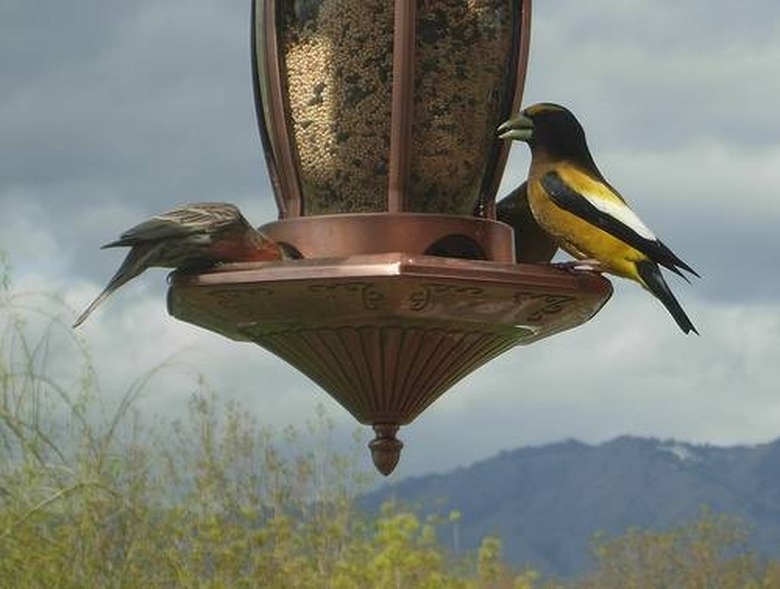Why Does Bird Seed Grow Grass?
What is in Bird Seed?
What is in Bird Seed?
Bird seed contains one or more of a variety of seeds and other ingredients depending on the type of birds you are trying to feed or attract. Some common ingredients in bird seed are the black-oil sunflower seed, Thistle seed, Safflower seed, Millet, corn and Milo. Bird seed may also contain dried fruits, nuts and suet. Special blends are available for caged birds to enhance color and provide grit needed for digestion. Bird lovers purchase individual seeds like Thistle seed to attract a specific variety of bird-like finches.
How Does Bird Seed Get Planted?
How Does Bird Seed Get Planted?
While birds are feeding, at bird feeders hanging at various homes and businesses, some seeds spill onto the ground. Other seeds consumed by birds are not digested. These seeds land onto the ground wherever the bird happens to be when it defecates. When squirrels raid bird feeders, they spill more seeds. The squirrels also steal seeds and plant them into the ground for feeding during winter months. Those families with pet birds must periodically clean their cages. They may inadvertently plant seeds if they compost or throw the loose seeds out from the bottom of the cages into the yards or gardens.
What Grows From Bird Seed?
What Grows From Bird Seed?
The type of bird seed that individuals are placing into their bird feeders controls the type of plants that will grow from bird seed. For example, if you are feeding finches Thistle seed, then the plants that grow under your bird feeder will be Thistles. These are weeds that farmers do not want growing in their fields. However, if you are feeding a mixed bird seed containing Millet and Milo, then something that looks like grass will grow. Millet grows into a pale green shiny plant used in cereals and bird seed that looks like grass. Milo also grows into a plant that looks like a grass, but is actually a type of sorghum grown specifically for its grain. It grows quickly and resists drought, explaining why it springs up so fast under bird feeders.
Throw Out Moldy or Growing Seed
Throw Out Moldy or Growing Seed
Store your bird seed in a cool place in an airtight container where it will stay dry if you buy it in bulk. If you notice mold growing on your bird seed, throw it away. The mold may contain toxins that are harmful to birds. If the seeds are growing in your container, then moisture has gotten to your bird seed. Any moisture may indicate the presence of mold. Therefore, you should dispose of it.
